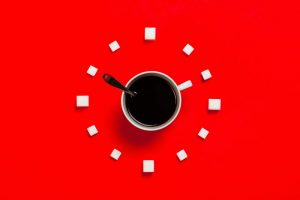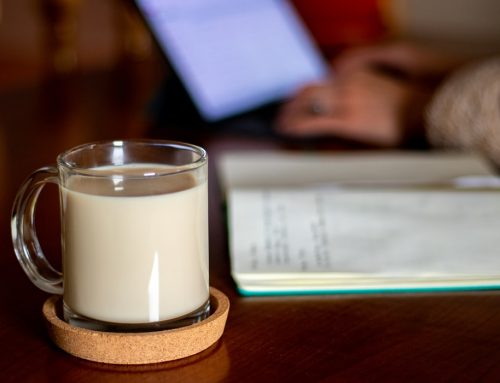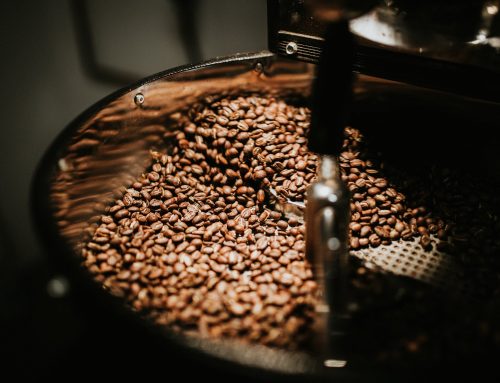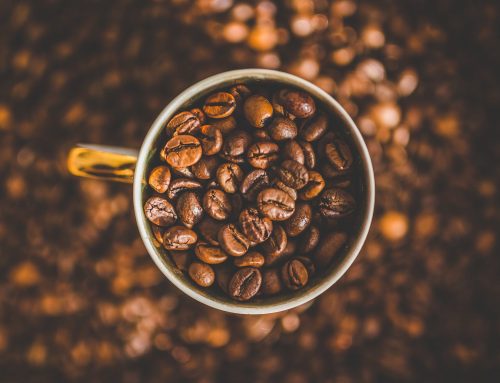We want to do a lot of stuff; we’re not in great shape. We didn’t get a good night’s sleep. We’re a little depressed. Coffee solves all these problems in one delightful little cup
Jerry Seinfeld
Anything could be bad if consumed in excess. Your coffee habit is probably fine and may even have some benefits. But if you have side effects from coffee, such as heartburn, nervousness or insomnia, consider cutting back.
Coffee still has potential risks, mostly due to its high caffeine content.

Here are some side effects of consuming caffeine in excess.
Caffeine can increase alertness.
It works by blocking the effects of adenosine, a brain chemical that makes you feel tired. At the same time, it triggers the release of adrenaline, the hormone associated with increased energy.
At higher doses, these effects lead to anxiety and nervousness.
Additionally, modest doses have been shown to cause rapid breathing and increase stress levels when consumed in one sitting.
If you notice that you often feel nervous it might be a good idea to look at your caffeine intake and cut it back.
Caffeine’s ability to help people stay awake is one of its most prized qualities.
On the other hand, too much caffeine can make it difficult to get enough restorative sleep.
Higher caffeine intake appears to increase the amount of time it takes to fall asleep.
Although coffee and tea are the most concentrated sources of caffeine, it is also found in soda, cocoa, energy drinks and several types of medication.
In addition, caffeine consumed later in the day may interfere with sleep because its effects can take several hours to wear off.
It is suggested that it is important to pay attention to both the amount and timing of caffeine to optimise your sleep.
Coffee’s laxative effect has been attributed to the release of gastrin, a hormone the stomach produces that speeds up activity in the colon. Interestingly, decaffeinated coffee has been shown to produce a similar response.
However, caffeine itself also seems to stimulate bowel movements by increasing peristalsis, the contractions that move food through your digestive tract.
Given this effect, large doses of caffeine may lead to loose stools or even diarrhoea.
Since coffee can have major effects on digestive function, you may want to cut back on the amount you drink or switch to tea if you experience any issues.
Despite all of caffeine’s health benefits, there’s no denying that it may become habit-forming.
It may lead to psychological or physical dependency, especially at high dosages.
Additionally, the frequency of caffeine intake seems to play a role in dependency.
Overall, caffeine doesn’t seem to increase the risk of heart disease or stroke in most people.
Elevated blood pressure is a risk factor for heart attack and stroke because it may damage arteries over time, restricting the flow of blood to your heart and brain.
Fortunately, caffeine’s effect on blood pressure seems to be temporary. Also, it seems to have the strongest impact on people who aren’t used to consuming it.
Therefore, paying attention to the dosage and timing of caffeine is important, especially if you already have high blood pressure.
The stimulatory effects of high caffeine intake may cause your heart to beat faster.
Regardless of the mixed study results, if you notice any changes in your heart rate or rhythm after drinking caffeinated beverages, consider decreasing your intake.
Coffee, tea and other caffeinated beverages are known to boost energy levels.
However, they can also have the opposite effect by leading to rebound fatigue after the caffeine leaves your system.
Increased urination is a common side effect of high caffeine intake due to the compound’s stimulatory effects on the bladder.
If you drink a lot of caffeinated beverages and feel that your urination is more frequent or urgent than it should be, it may be a good idea to cut back on your intake to see if your symptoms improve.
In conclusion, everything that we consume or do in out life ought to be in moderation. It is never a great idea to over consume food and drinks or overdo activities, even supposedly good ones. Everything should have its limits and boundaries.
If you enjoy drinking coffee, do it in moderation, so each cup of coffee will be like a treasure and will only benefit your body and mind.






